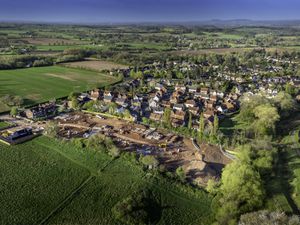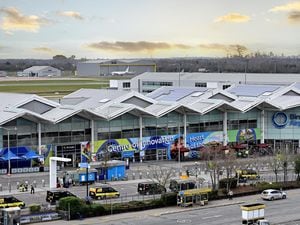Gamblers in West Midlands lose £24m on gaming machines
Gamblers lost £24 million on high stakes machines in town centre bookies in the West Midlands in one year, figures have shown.
Campaigners say it reinforces calls for a clampdown on fixed odds betting terminals that allow people to gamble hundreds of pounds at a time.
The Campaign for Fairer Gambling also reveals that some of the biggest losses were incurred in areas with the highest deprivation, with people in Sandwell blowing £7.4m on the machines last year. However the Association of British Bookmakers disputes the statistics and said it would make 'no sense' for its members to target poor communities.
It comes as bookmakers' chain, Ladbrokes, was shown to have made £1 billion from the highly addictive machines in one month.
The Government has suggested it is prepared to crack down on the terminals and give bookies penalties if they fail to cap losses or limit playing time. Councils could also be given powers to stop bookies shops clustering.
Estimates by the campaign group suggest gamblers in Wolverhampton lost £6,304,178 last year while in Dudley and Walsall the figure was just under £5m each.
Areas like Lichfield and Dudley saw gamblers lose £1.3m in each district while in Stafford it was just under £1.5m and in South Staffordshire just £733,000. In Cannock Chase the estimate was just under £2.2m. The figures were worked out based on each gambling terminal providing an average profit of £762 each year and an industry average of between three and four terminals per shop.
Walsall councillor Gareth Illmann-Walker has called for the terminals to be banned or for councils to have the power to curb their use. He said: "I would prefer them to be banned outright. We have seen a proliferation of betting shops in the past few years and a lot are in areas of deprivation."
Chancellor George Osborne recently announced that duty on the terminals would be set at 25 per cent. Bookmakers are allowed a maximum four fixed odd betting machines in each of their premises. They have become so popular that it is claimed they account for up to 80 per cent of the profits in some high street betting offices.
Tom Watson, Labour MP for West Bromwich East, who has campaigned against the machines, said: "There are more of these machines in the areas with the poorest people. The enormous profits they generate are not put back into the area."
In February the Association of British Bookmakers introduced a code of practice where warning messages flash on screen when someone has spent £250 or been playing for 30 minutes.
The machines now provide around half of bookmakers' total profits.
ABB spokesman Peter Craske said: "
Across the West Midlands, more than 3,700 people work in the industry and we contribute £219m a year to the region's economy.
"We introduced new measures in March that allow players to set their own limits on the amount of time they play for or amount they spend. The evidence after the first few weeks of this new system shows that when people reach those limits they stop playing."





